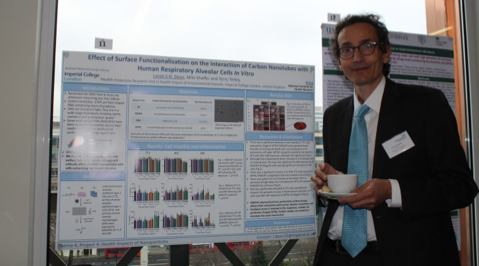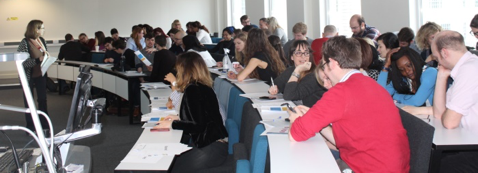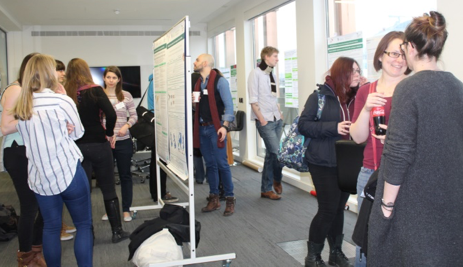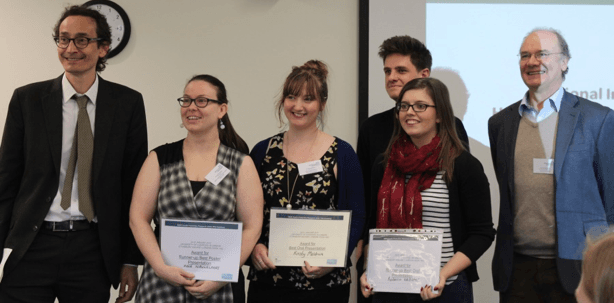By Lareb Dean & Kirsty Meldrum
On the 30th and 31st January 2017 the inaugural Health Protection Research Unit (HPRU) PhD Academy was held at the University of Liverpool in London. The National Institute for Health Research created the HPRUs with a view for collaborative research between universities and Public Health England (PHE). The event aimed to stimulate discussion and collaboration across the HPRUs, which include priority areas ranging from blood-borne and sexually transmitted diseases, to the health impact of environmental hazards.
“We think it’s very important to understand where your research fits into the wider picture and world around you and what patients and the public actually think is important”
Held over two days, the academy consisted of oral presentations by students introducing their HPRUs and individual projects. In addition delegates from each HPRU were invited to present posters and discuss their ongoing research.

On the first day guest speakers from Public Health England (PHE) covered topics including the importance of the students’ contribution to PHE and developing a career in public health, as well as conducting an outbreak workshop. Topics covered by the PhD students included evaluating the burden of antimicrobial resistance, a review of Salmonella and determining patient outcome following acute Ebola virus infection.

Each unit was asked to give a brief introduction to their HPRU and the students involved, before two presentations on work within that HPRU. The presentations were kicked off by the HPRU in Health Impact of Environmental Hazards. As a student with this HPRU, I (Kirsty Meldrum) was joined by Alex Cooper (PHE) to give an introduction to our work. Within this unit we are looking at the hazards particles and chemicals may have on the population through the use of wet lab and in silico modelling methods.

The next unit to present was the HPRU in Emergency Preparedness and Response. These presentations were really interesting as they discussed vaccinations and the reasons behind why the uptake of them might be poor. They also presented interesting work on the side effects of medications that might prevent people taking them, and the “nocebo” effect where volunteers are given a placebo and still experience these side effects.
Third to present was the HPRU in Environmental Change and Health who discussed the potential for tick-borne diseases in urban green spaces. The government currently wants to increase ‘green spaces’ yet the potential for these diseases to increase is something that hasn’t been investigated.
“Overall the two days were informal, but very informative – definitely something that would be brilliant to repeat in the future”
The final talk was from the HPRU in Evaluation of Interventions who initially talked about the implication on changing vaccination policy on BCG vaccination, and then went onto to discuss looking at Meningitis B vaccine development at different phases and densities of colonisation.
After a short break there were then further invited speakers that talked about ethics, research integrity and governance (a valuable talk on what is actually required for a clinical trial and the various avenues that could be used to start one) and a talk about getting patients and public involved in research. This talk used personal examples to demonstrate why getting patients and public involved was important and how to go about doing it. Both these speakers were very informative and opened our eyes to the larger world of research, not just being in the lab!
